Ambassador Ali Asghar Soltanieh made the remarks in an interview with the Persian service of ISNA published on Friday, a day after the IAEA released a report on Iran’s nuclear program, in which it said that Iran had begun installing advanced centrifuges at the Natanz uranium enrichment plant.
“The main message of the report after ten years of inspections of Iran’s facilities, materials, and nuclear activities is that there is no diversion toward military purposes in these activities and facilities,” Soltanieh said, adding, “The agency also says in the report that (uranium) enrichment is continuing in Iran without any problem and under the full supervision of the agency.”
He also said, “According to the agency’s report, enrichment to a purity level of 20 percent with the aim of fueling the Tehran reactor is successfully continuing, and it indicates the peaceful use of enrichment to supply the Tehran research reactor with fuel to provide hospitals with radioisotopes they need.”
The Tehran research reactor produces radioisotopes for cancer treatment.
Elsewhere in his remarks, the Iranian ambassador said that Iran was committed to continuing talks with the IAEA, adding that the success of the process of talks depend on maintaining a “calm atmosphere of cooperation” and avoiding any “political and propagandistic commotion.”
According to Reuters, the IAEA report said 180 so-called IR-2m centrifuges and empty centrifuge casings had been put in place at the Natanz facility. They were not yet operating.
If launched successfully, such machines could enable Iran to speed up significantly its accumulation of enriched fuel.
U.S. State Department spokeswoman Victoria Nuland said Iran’s installation of new-generation centrifuges would be “yet another provocative step.”
Britain’s Foreign Office said the IAEA’s finding was of “serious concern”.
Iran denies Western accusations that it is seeking to develop a capability to make atomic bombs. Tehran says it is Israel’s nuclear arsenal that threatens peace.
Iran has also started testing two new centrifuge types, the IR-6 and IR-6s, at a research and development facility, according to the IAEA report.
Centrifuges spin at supersonic speed to increase the ratio of the fissile isotope in uranium.
The report also said Iran in December resumed converting some of its uranium refined to a fissile concentration of 20 percent to oxide powder for the production of reactor fuel.
Iran had increased to 167 kg (367 pounds) its stockpile of 20 percent uranium, it added.
One diplomat familiar with the report said this represented a rise of about 18-19 kg since November, a notable slowdown from the previous three-month period when the stockpile jumped by nearly 50 percent after Iran halted conversion.
The UN nuclear watchdog also said that Iran had almost completed installation of cooling and moderator circuit piping in the heavy water plant near the town of Arak.
The report was issued just a few days before a new round of talks between Iran and the P5+1 group (the five permanent members of the UN Security Council and Germany) over the country’s nuclear program, which is scheduled to be held in Almaty, Kazakhstan, on February 26.
The six major powers want Iran to halt 20 percent enrichment and shut the Fordo underground plant where this takes place.
Iran wants them to recognize its right to refine uranium for peaceful purposes and to ease economic sanctions against the country.
The powers plan to offer to ease sanctions that bar trade in gold and other precious metals with Iran in return for Iranian steps to shut down the nation’s newly expanded Fordo uranium enrichment plant, Western officials told Reuters on Friday.
A U.S. official said the United States was ready to meet bilaterally with Iran in Almaty.
“You’ve heard us say repeatedly we are open to meeting bilaterally within the context of P5+1,” said the official, speaking on condition of anonymity. “I fully expect we’ll be ready to meet them bilaterally if they are willing. We’ll see in Almaty.”
In Paris, deputy foreign ministry spokesman Vincent Floreani said the powers were ready to make a new offer to Iran with “significant new elements” and that they hoped Tehran would engage seriously in the negotiations.
Iran has suggested that shutting down Fordo in exchange for a lifting of gold sanctions would not be acceptable.
AM/PA
MNA
END
MNA
END


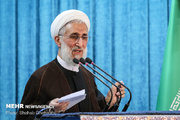
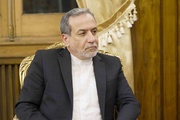
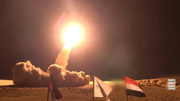
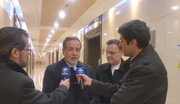
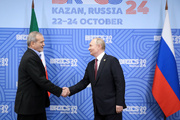
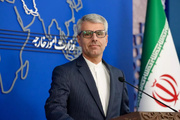
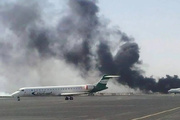
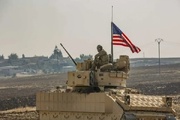
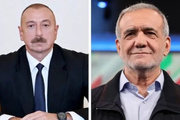
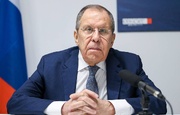
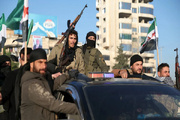


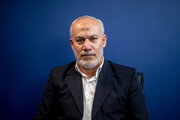

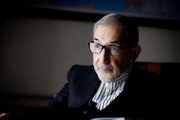
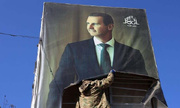

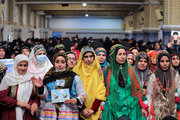
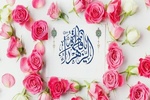

Your Comment